
I’m a massive fan of second-hand stuff and ‘pass it on’ culture for most of my life choices. However my work centres around constantly pushing new stuff from an industry with a dreadful track record for sustainable product tech and standards. Welcome to part one of my dive into the murky waters of greenwashing and engineered obsolescence in the hope of finding the heroes who we need to support if we want to steer our hobby in a more sustainable direction.
Hello Mr Hypocrite
Before we go any further let’s confront the fact that my writing about sustainability is hugely hypocritical. I’ve raised a family by reporting and reviewing the latest bikes and gear. Yet now I’m saying how awful it is that manufacturers are constantly pushing new things that aren’t backward compatible. And sure I can make excuses about that kind of content getting the best view counts and traffic so I’m only doing what people want. That sounds a lot like the ‘I was only obeying orders’ statements that hang over behaviors from some of the darkest moments of history.
So all I can really say is that I hope my personal realization that we really need to do something is reflecting a change in attitude across the wider biking world.
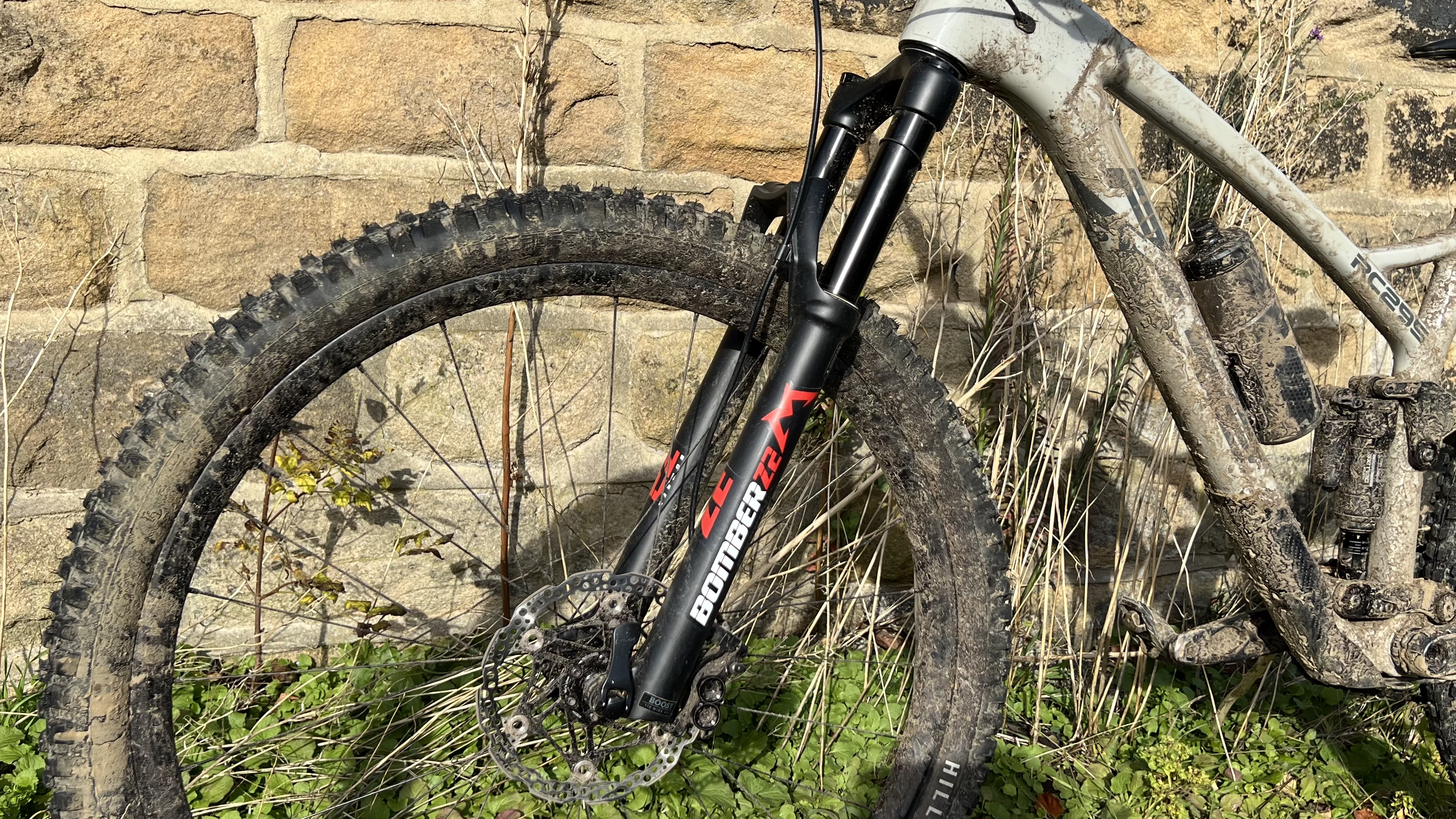
Recognising wrongs and looking for rights
I could write an essay on why that needs to happen too. Whether it’s the almost universal switch to convenient cartridge style bearings rather than serviceable sets, constantly changing axle, steerer, and gear hanger/gear standards. Or the outlaw landscape of e-bikes where there are no mounting or size standards at all across motors and batteries. Where the fact that new motors or batteries won’t even fit in older bikes from the same brand and category doesn’t seem to bother most buyers. As long as there’s a perceived performance or convenience gain we carry on ploughing forwards without once looking at the mess we leave in our wake. Something you could level at a lot of riders and ‘trail’ builders at the moment too, but that’s another conversation/crusade entirely.
So where should the bike industry look for inspiration? And what brands are leading the way in terms of reducing waste by offering refurbished kit programs that let you buy with a reduced cost on your pocket and your eco-conscience?
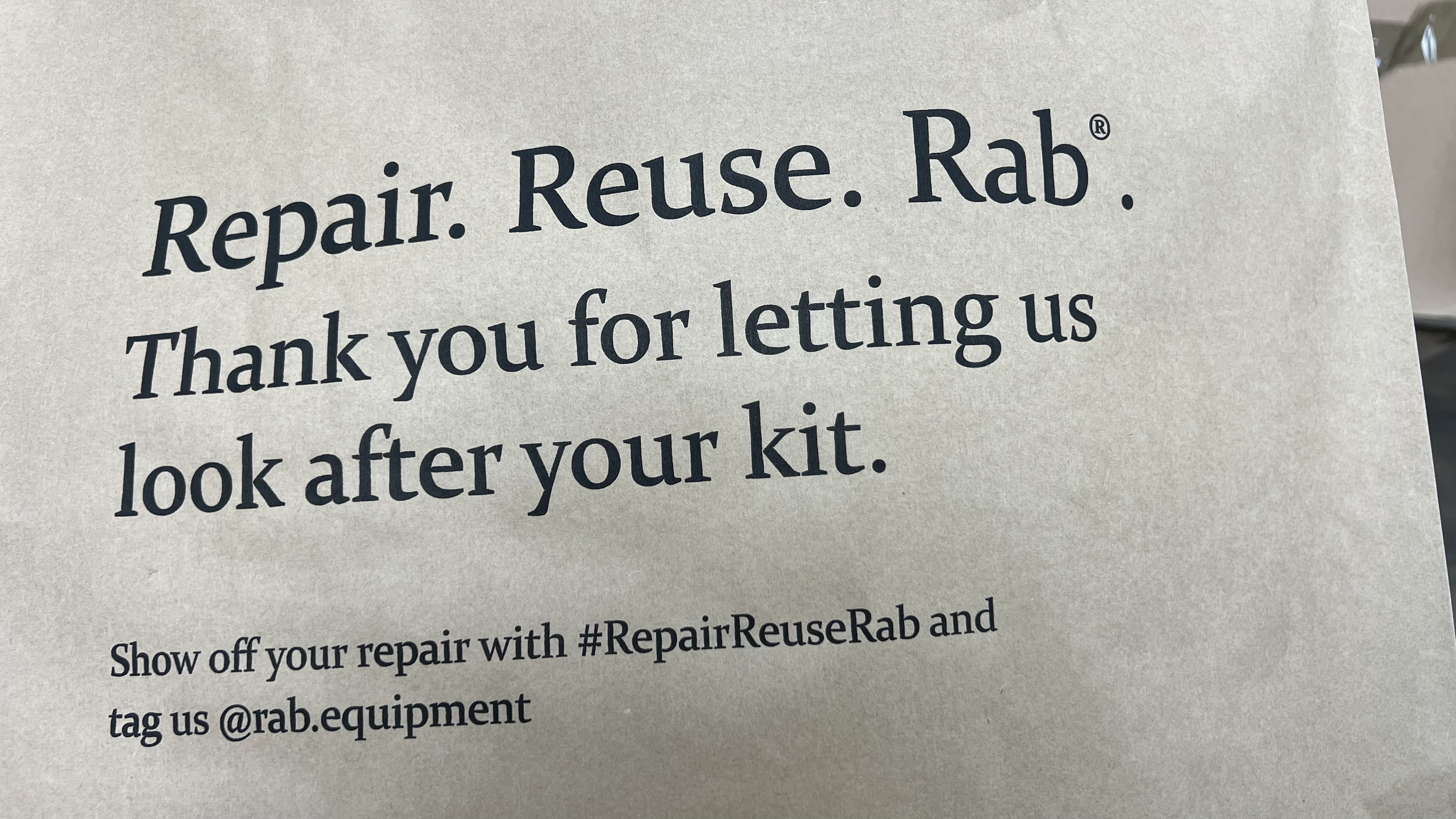
Outdoor to the fore
In terms of where to look for some good practice guides, the outdoor gear industry has some great examples of responsible manufacturing and product awareness. Patagonia is the gold standard of ethical behavior which started when it famously binned off its most popular product - a climbing screw - after it realized how much damage they were causing to climbs through irresponsible use. Of course, other more cynical brands jumped in and carried on making them, but Patagonia stood firm and they’re still leading the way in most areas of sustainable sourcing, employee care, and eco-gifting.
Lots of other outdoor companies have followed their lead to a greater or lesser extent and some of those have moved into biking. The founders of Canadian firm 7Mesh have links to the ethical outdoor/climbing brand Arc’teryx and have taken those principles into the bike clothing brand. They’re very forthright about it on their website too: “We hate greenwashing. There, we said it. So much over-claiming, and so much self-congratulating. So many carbon credits, so many trees. Is it really that easy? At the end of the day, our industry builds products primarily for recreation rather than necessity, which should give us all extra motivation to limit our impacts… Reduce, reuse, recycle - in that order.” ” We design for longevity, working to reduce the weakest area or potential failure points in each of our products. We also design for repairability, choosing construction that eases the difficulty and cost of repairs. 7mesh provides a lifetime warranty against defects, and repairs garments at our headquarters in Squamish, as well as through qualified gear repair locations in Europe, the UK & the US. Currently (2023) 41 percent of our styles have significant recycled content, and our goal is to achieve 95 percent by fall of 2025.”
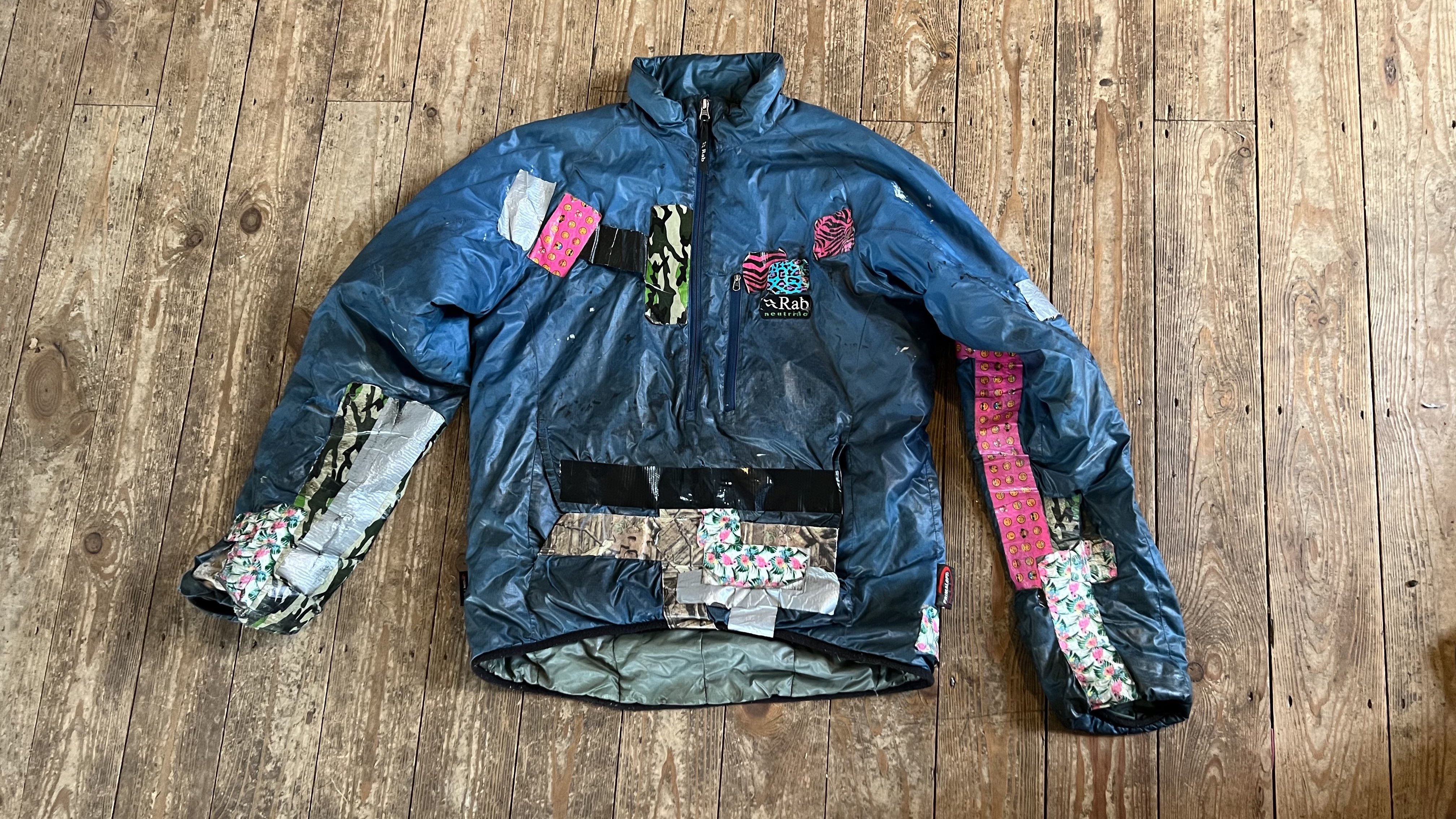
UK mountain brand Rab has recently entered the bike market with its Cinder range and when I visited its factory in Derbyshire this week we spent the majority of our time there talking about the efforts to not just support its customers but limit the impact of its product on the environment they’re designed to be enjoyed in. Rab is in its fourth year as a climate-neutral company with a clearly signposted plan to become carbon net zero by 2030, using extremely high percentages of recycled materials where possible and only working with vendors with high ethical and eco standards. While poly bags are currently unavoidable when it comes to reliably protecting products in transit they switch to recycled paper for final delivery wherever possible and then collect the bags for pelletizing and re-use in recycled bags. Even a simple change to rolled-up garments rather than flat packed has decreased the amount of plastic needed to bag each one by 70 percent and they’re looking at similar economies right through their product process.
Rab also has in-house repair, reproofing, and washing services to keep old kit performing like new. They even gleefully accepted the challenge of refurbishing a Rab Neutrino jacket I’ve had since 2003 that was more gaffer tape than original fabric.
Clothes are also upcycled in ‘Frankenstein’ style either through its Second Stitch scheme or by de-badging them and sending them to homeless and Himalayan charities. Rab gear that’s too far gone to repair is fully stripped down into different components such as zips, badges, and fabric patches to maximize re-usage too. Alpkit offers a similar repair service for their kit as do brands such as Apidura and Ortlieb who specifically design their bikepacking kit for easy hardware replacement.
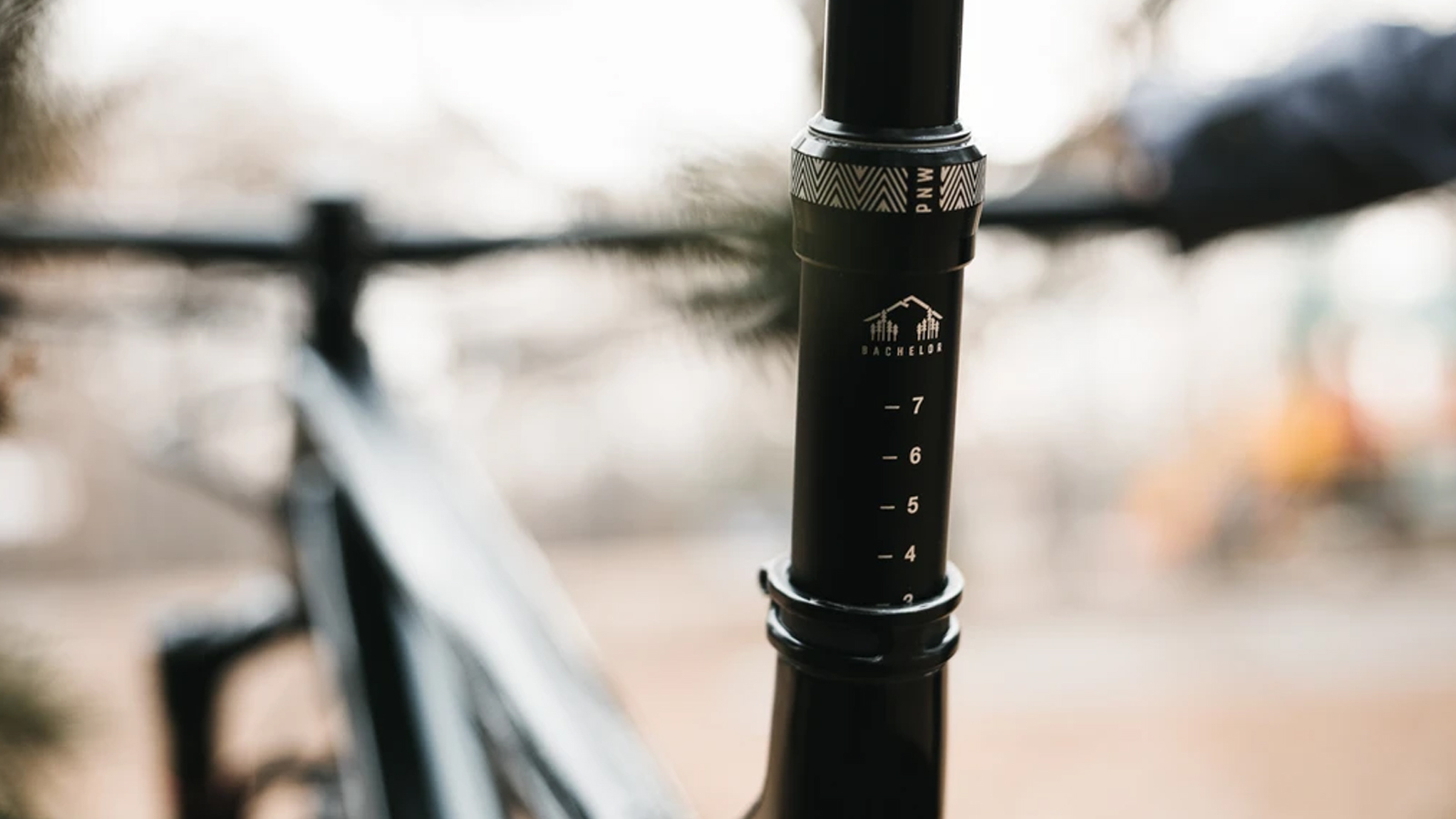
Recycling cycling
While soft goods are definitely leading the way, more hard goods brands are also starting to push the reuse and recycle agenda. PNW components have been running its PNW Cycled program for a while. This lets you buy seatposts that have been returned (generally because customers have bought the wrong size) for a reduced cost. It also offers a lifetime warranty on all its hardware and clothing.
The recently announced HUNT RE:NEW program “allows riders to benefit from significant savings on lightly used Hunt Wheels, helping us keep perfectly functional wheels on bikes where they belong. The process also allows us to reuse materials and components, helping us reduce our carbon footprint while offering an option for riders seeking more sustainable post-consumer products with lower environmental impact.”
Schwalbe now runs a tire recycling scheme through its dealers and they’re leading the way in the use of Fair Trade rubber. Other forward-thinking shops like The Bikes College in Leeds which I also visited this week in advance of a full feature and ‘puff Jones’ and his fantastic ‘Free Bikes For Kids’ scheme in South Wales are doing incredible work recycling old bikes and gear. They do it specifically to get people cycling who couldn’t otherwise afford it and the resulting gains in terms of mobility and mental health can literally be life-changing for their customers.
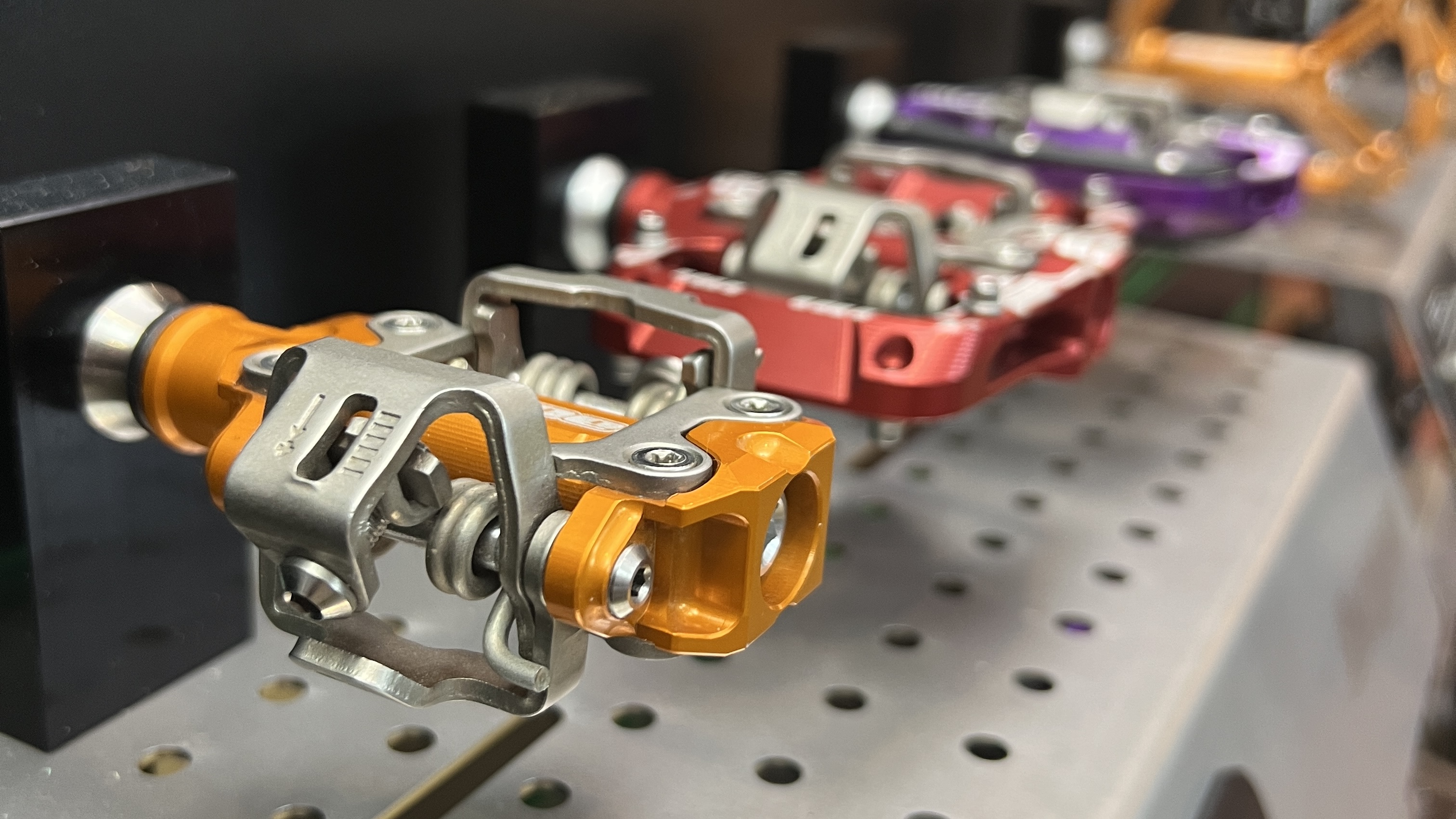
Hope Technology has been recycling its swarf and keeping practically all its manufacturing and 100 percent of the actual component creation in-house since it started. They're legendary for keeping even its oldest components going for customers with fresh parts and they even open-source printable servicing tools wherever possible.
We’re seeing increasing numbers of other brands like Cotic and Pace onshoring, or at least oncontinenting as much of their frame production and bike building as possible rather than relying on far eastern factories and vendors. And while that still comes at a price premium, the reduction in shipping costs means it’s often a small cost to pay for a product that leaves a much smaller wake of waste and pollution.
With conventional pedaled bike designs now plateauing in terms of performance and features there’s much less of an imperative to buy the latest model as soon as it’s launched. Maybe that means we’ll see sustainable, ecologically responsible manufacturing and logistics becoming the new ‘must have feature’ not internal storage or headset cable routing. The current overstock situation will hopefully have taught some memorable lessons in terms of excess production too. Slimming down product lines rather than trying to sell multiple options of essential the same product certainly seems to be a major trend among manufacturers now.
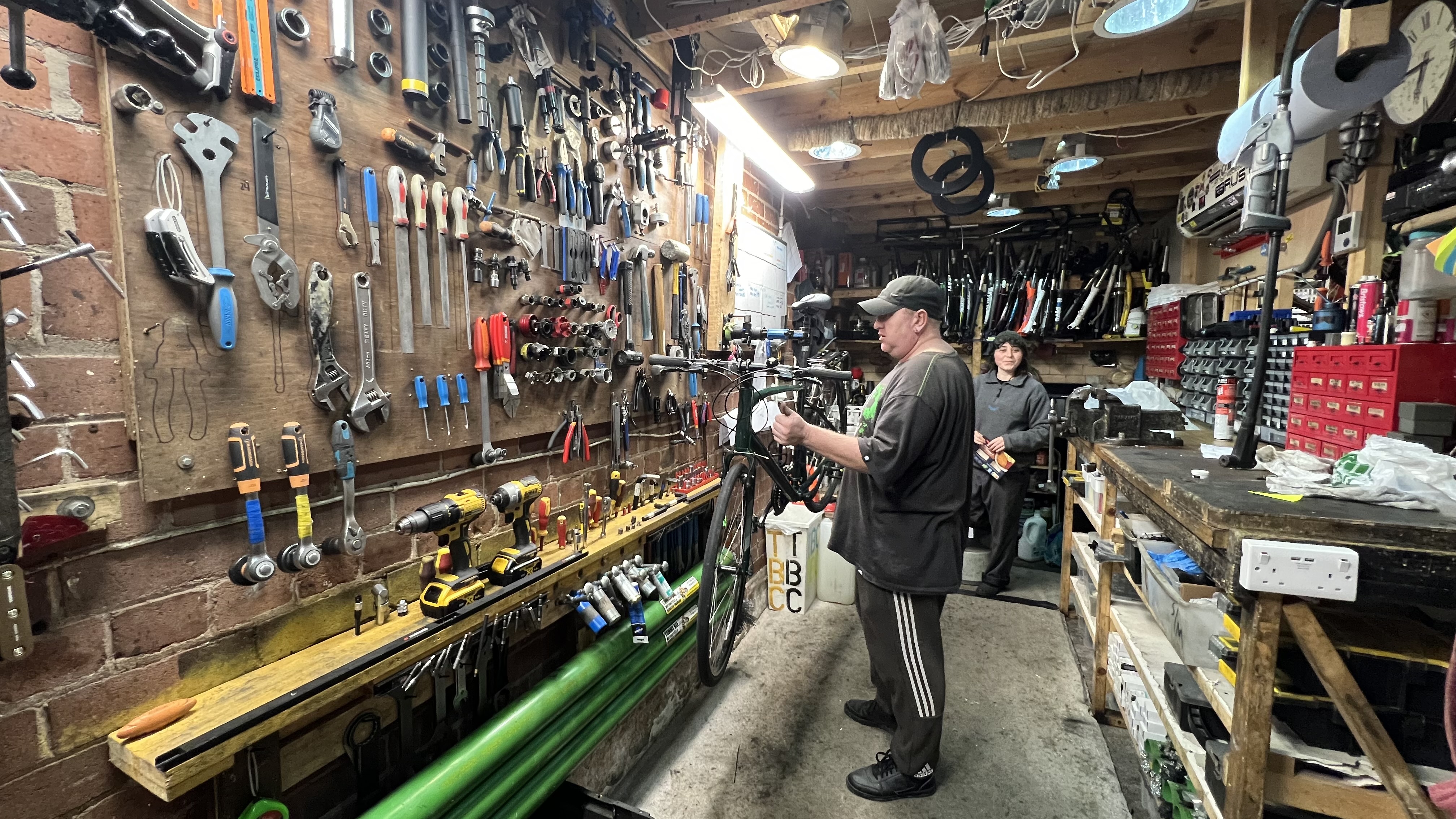
It's us not them
I'll definitely be making a lot more effort to consider that in reviews going forward though. Bike Perfect also has a site-wide policy of digging deep into eco credentials and aspects like PFC and PTFE use that we’ll continue to strengthen going forward.
At the end of the day though, it’s consumers that control the situation. So until people stop blindly buying the latest thing without considering the ongoing impact another new standard will have, or caring what happens to the bike or bits they just discarded then we’re not going to see significant change. Being a sport that becomes a great example of how to behave towards the planet rather than a really bad one would be a cool way to repay the joy riding gives us though eh?







